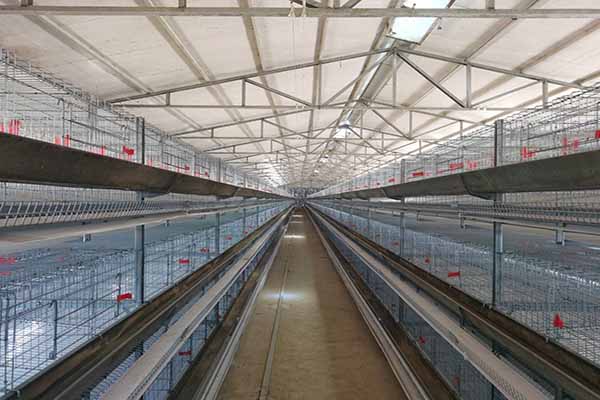Complete Guide to Building a Poultry Farm
1. Planning Your Poultry Farm
Before embarking on the journey of building a poultry farm, thorough planning is crucial. Consider the following aspects:
- Location: Choose a location that is easily accessible and has minimal noise and air pollution.
- Size: The size of your poultry farm will depend on your budget and expected production capacity.
- Layout: Design a layout that promotes efficient workflow and minimizes stress on the birds.
- Regulations: Be aware of local regulations regarding poultry farming, including biosecurity measures and waste management.
2. Poultry Farming Equipment
Investing in high-quality equipment is essential for the success of your poultry farm. Here are some essential items:
- Automated Chicken Cages: Automating your chicken housing can lead to improved biosecurity and ease of management.
- Feeding Systems: Automatic feeding systems help ensure consistent feed distribution and reduce feed waste.
- Watering Systems: Water is vital for the health of your birds. Consider using automated watering systems.
- Environmental Control Systems: Monitor and control temperature, humidity, and air exchange to maintain optimal conditions for your birds.
3. Biosecurity Measures
Implementing robust biosecurity measures is crucial to prevent diseases and maintain a healthy flock. Consider the following:
- Sanitization: Regularly sanitize equipment, facilities, and vehicles to prevent disease transmission.
- Staff Training: Educate your staff on biosecurity best practices to minimize risk.
- Pest Control: Control pests such as rodents and insects, as they can carry diseases and cause damage to your poultry.
- Vaccination Programs: Implement a vaccination program to protect your birds from common diseases.
4. Feed and Nutrition
Nutrition plays a crucial role in the growth and productivity of your poultry. Here are some tips:
- Quality Feed: Invest in high-quality feed to ensure your birds receive the necessary nutrients.
- Balanced Diet: Develop a balanced diet that meets the nutritional requirements of your birds at different growth stages.
- Supplements: Consider using supplements to address specific nutritional needs, such as vitamins and minerals.
5. Water Quality and Management
Water quality is crucial for the health and productivity of your poultry. Consider the following:
- Regular Testing: Test your water supply regularly for contaminants and treat it accordingly.
- Access to Fresh Water: Ensure your birds have access to clean, fresh water at all times.
- Water Lines: Install high-quality water lines to minimize the risk of contamination.
6. Monitoring and Management
Regular monitoring and management are essential to identify and address any issues that may arise:
- Health Checks: Conduct regular health checks to identify and treat any diseases promptly.
- Performance Tracking: Monitor your birds’ growth, productivity, and egg quality to ensure you are meeting your objectives.
- Staff Training: Continuously train your staff on management best practices to improve the overall efficiency of your poultry farm.
7. Marketing Your Poultry Products
Once your poultry farm is up and running, it’s essential to have a solid marketing plan:
- Identify Your Target Market: Determine who your customers are and how you can meet their needs.
- Build Your Brand: Develop a strong brand identity to differentiate your products in the market.
- Distribution Channels: Explore various distribution channels to reach your target market efficiently.
- Customer Feedback: Collect and analyze customer feedback to improve your products and services.
Encourage potential clients to contact us for a free poultry farm design and equipment quote. Our expert team at Livi Mechanical is ready to assist you in making your poultry farm a success.





